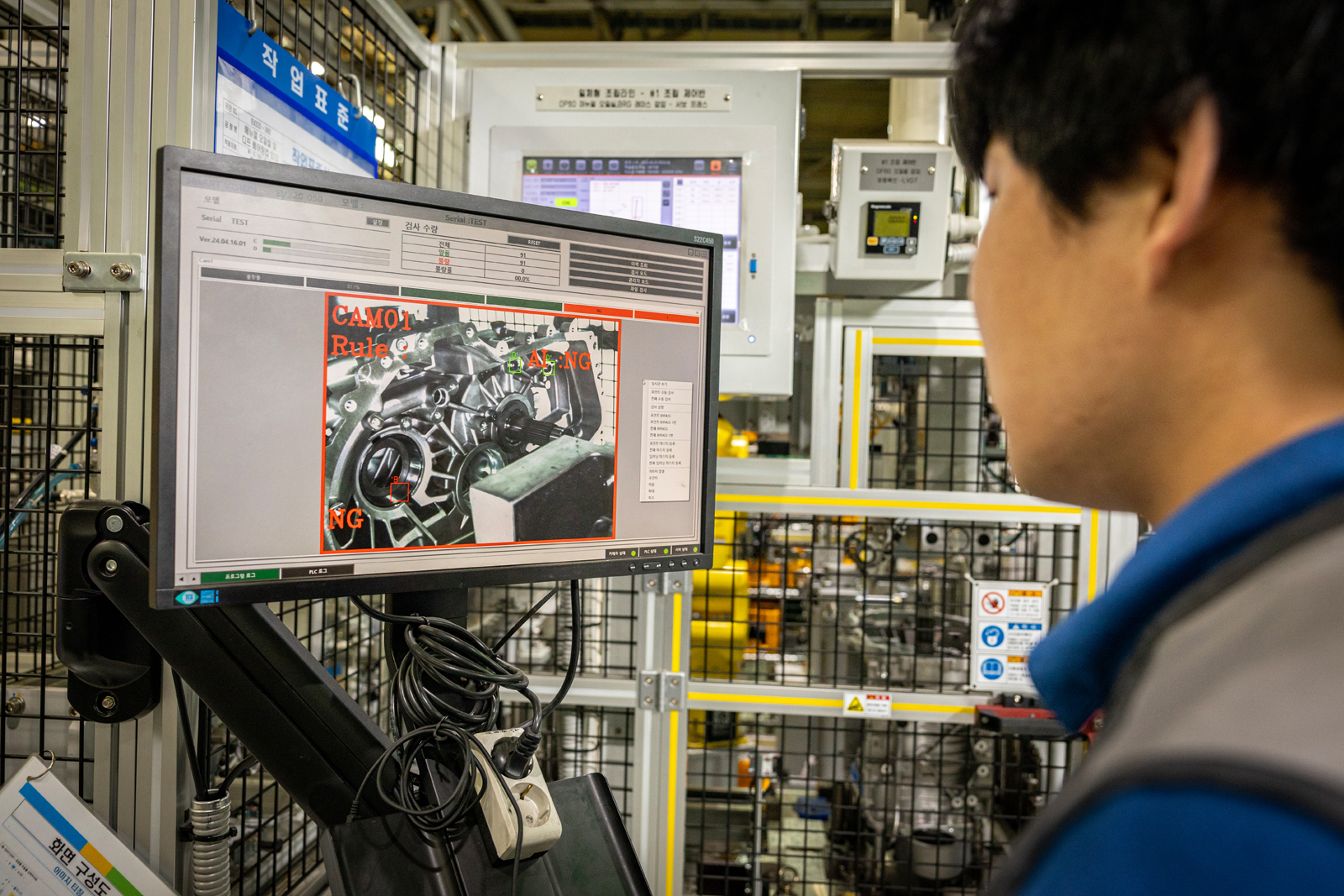News

- TADA Smart Solutions applied to global production sites, achieving 99.9% accuracy in defect inspection
- TADA Edge Solution assists partner companies in building smart factories to enhance quality competitiveness and realize shared value
- TADA AI Technology contributes to building safe production sites and enhancing R&D efficiency
Hyundai Transys is boosting its quality competitiveness by implementing its self-developed AI system, “Transys Advanced Data Analytics (TADA),” in its production sites.
TADA is a digital platform driving innovation across Hyundai Transys’s business operations. It encompasses developing AI systems to implement smart manufacturing technology, a big data platform to support data-driven decision-making, and training programs to enhance employee’s digital transformation capabilities.
In particular, the “TADA Smart Solution” and “TADA Edge Solution” are self-developed programs that utilize AI deep learning technology to enhance production efficiency and defect inspection accuracy on the manufacturing floor, significantly contributing to Hyundai Transys’s quality management.
TADA Smart Solution is a vision inspection system where deep learning AI detects defects during the scanning process, identifying small bubbles, damage, etc., in parts during manufacturing and assembly. The TADA Smart Solution, trained with high-quality component X-ray images, has improved inspection accuracy from 93% to 99.9%, even detecting defects that human inspectors might miss.
As of July 2024, Hyundai Transys has implemented this in 7 factories in Seosan, including Jigok and Seongyeon, as well as in 54 processes at the Georgia Powertrain Plant in the United States. We have seen cost savings and productivity improvements by introducing a commercial deep learning program developed in-house.
TADA Edge Solution is a small AI inspection system developed to easily create and apply customized deep learning models on-site, even by nonexperts.
In the production site, if you collect production process images such as the mounting status and quantity check of the parts you want to inspect through a small camera and proceed with the labeling work, the TADA Edge Solution will conduct defect inspection after learning. It is used to check the number of bolts assembled, mounting status, and joint lifting inspection at four Hyundai Transys Seosan Plant locations.
Hyundai Transys is enhancing its collaborative management by supporting its partners with the TADA Edge Solution, aiding in establishing smart factories.
The TADA Edge Solution can be installed at one-tenth the cost of traditional AI deep learning inspection equipment (vision systems). In addition, it does not require network construction work or specialized maintenance technicians, allowing small and medium-sized partners to enhance production efficiency and reduce defect rates effortlessly. It is currently installed and operational at the partner company responsible for manufacturing sheet parts.
TADA AI technology is also responsible for the safety of workers on site.
Hyundai Transys has installed AI-based responsive CCTV in four areas of the Jigok Plant, where logistics vehicles and forklifts frequently pass through. These cameras sound an alarm to prevent accidents by alerting workers when vehicles approach. From an environmental perspective, around 30 responsive CCTVs detect equipment damage and immediately send alerts and messages to facility managers in case of oil or wastewater leaks, enabling swift action.
Not only in the production field but also in the research and development field, TADA AI has been utilized to improve work efficiency.
The “gears” used in transmissions and reducers are crucial components that affect a vehicle‘s safety, efficiency, and quietness. The Electrification R&D Division at Hyundai Transys has incorporated AI technology into the durability testing process for powertrain gear development.
A deep learning AI measurement machine can now analyze the damage range and complete the report within an hour. This task previously took researchers up to 24 hours to determine the damaged areas in gear durability tests. Furthermore, the collected test data can assist in root cause analysis and the design process.
Kim Youngwook, director of Hyundai Transys ICT Group, stated, “Since 2022, we have been shifting our employees‘ work methods to be data-driven through TADA in-house training. We will continue to strive for digital innovation and improved work efficiency across all business areas, including production, development, and support of Hyundai Transys.”

